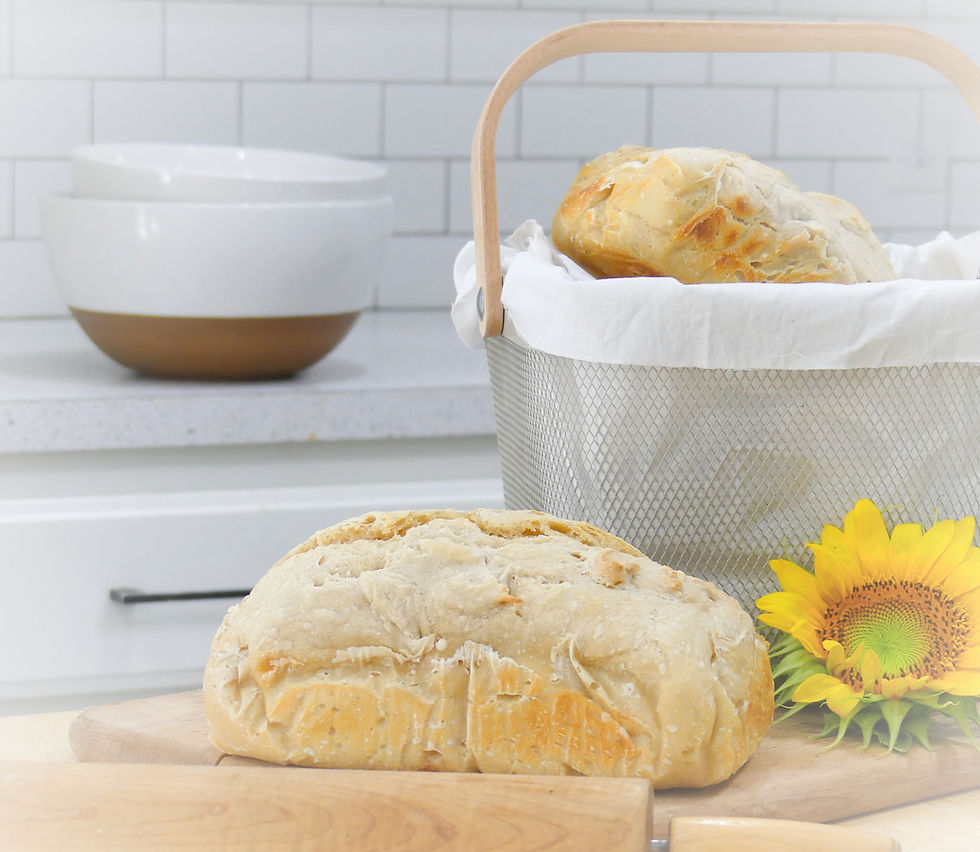Kelp for Your Farm
- Isabelle Hansen

- Nov 14, 2023
- 3 min read
We recently purchased a 40lb. bag of kelp meal after reading in several places about it's benefits. We are hoping that it will improve the health and productivity of our animals, as well as their feed efficiency.
A mineral deficiency can cause animals to be unable to properly utilize the protein and other nutrients in their diet. Which will result in them eating more food than they should need to.

Mineral deficiencies in animals can be displayed in a variety of ways. Poor health, licking or chewing on wooden objects (including trees), and rooting in grazing pigs, are some symptoms of mineral deficiency. In general, most animals today will benefit greatly from a mineral supplement.

Kelp is a natural source of vitamins, amino acids, natural plant growth hormones, and over 53 trace minerals, as well as both macro and micronutrients.
With minerals, it's not the amount that matters as much as the ratio of the different elements. Thorvin kelp has the perfect balance of minerals (the same ratio as found in healthy human blood), making it an ideal supplement not only for your animals but also for your garden!
What Kind?
It's best to use kelp that has been grown in a cold climate, and that has been geothermally dried (as opposed to natural gas drying). The higher temperatures of natural gas drying lower the number of minerals the kelp contains. Thorvin is a popular brand that follows the correct practices. We ordered ours from New Country Organics off of Amazon.

How Much to Feed
For animals that are typically given free choice minerals you can either mix equal amounts of kelp and salt or provide them separately.
For animals that aren't usually given minerals/salt free choice you can mix the kelp into their feed, at a ratio of 1% by weight during normal times, and 2% if they are under stress, such as after traveling, or if they are ill or raising babies.

Use in the Garden
In its liquid form kelp can be used as a foliar spray and will help increase the growth rate of your plants. It will also help them resist light frost and some insect and disease problems, particularly fusarium in tomatoes and red spider mite in fruit crops.
If applied to the ground, kelp has a chelating ability that makes minerals already in the soil more available to the plants.
If Your Animals Won't Eat it
This isn't usually a problem, but there have been instances where animals fed ammoniated feed or given urea liquid protein supplements or lick tanks wouldn't eat kelp.
So before starting to give kelp you should remove any commercially made supplements (pure salt blocks, diatomaceous earth, and other natural ones are fine). You may not think you are feeding ammoniated feed, but round bales are sometimes ammoniated. If your hay smells like bleach, try square bales for a little while and see what happens.
It is not known for sure why those things can cause animals to not eat kelp, but they can definitely disrupt animal's natural desire for healthy foods.
Some Other Health Benefits of Kelp
Prevents Pinkeye (iodine deficiency) in cows
Improves hatch rates and shell strength in chickens
Improves digestion
Strengthens appetite
Promotes healthy fur and plumage
Reduces coccidiosis in chickens
What's in it?
Here is a list of some things Thorvin kelp contains
Minerals
Silver
Aluminum
Gold
Boron
Barium
Calcium
Chlorine
Cobalt
Copper
Fluorine
Iron
Germanium
Mercury
Iodine
Potassium
Lantanum
Lithium
Magnesium
Manganese
Molybdenum
Sodium
Nickel
Osmium
Phosphorus
Lead
Rubidium
Sulfur
Antimony
Silicon
Tin
Strontium
Tellurium
Titanium
Thallium
Vanadium
Tungsten
Zinc
Zirconium
Selenium
Uranium
Vitamins
A
B1
B2
B6 (niacin)
B12
C
D
E
K
Hopefully this blog will help you have a healthy, mineralized farm through the use of kelp! If anyone has had any experiences with this that they would like to share, please let us know!



Comments